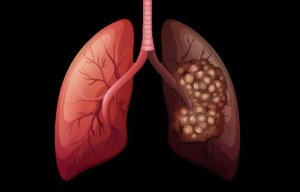When we think about health, we often separate conditions into categories—hearing problems are considered an ear issue, obesity a weight concern, glaucoma an eye disease, and tuberculosis (TB) a lung infection. However, medical research shows that these conditions are interconnected in ways most people don’t realize.
Your overall health is like a puzzle, with each piece affecting the others. Conditions such as obesity, hearing loss, glaucoma, and tuberculosis may seem unrelated, but they share common risk factors, including poor blood circulation, weakened immunity, and chronic inflammation.
Understanding these connections is key to prevention and early intervention. In this article, we’ll explore how these health issues are linked and provide practical steps to reduce your risk.
Hearing Loss: More Than Just an Ear Problem
Hearing loss is often associated with aging, but did you know that conditions like obesity, diabetes, and high blood pressure can increase your risk of hearing impairment?
How Does Hearing Loss Occur?
Hearing depends on tiny hair cells in the inner ear that convert sound waves into signals for the brain to process. These cells require a constant oxygen-rich blood supply to function properly. If blood flow is restricted—due to obesity, high cholesterol, or hypertension—these delicate hair cells can die, leading to permanent hearing loss.
Prevention Tips:
- Get regular hearing tests, especially if you have diabetes or high blood pressure.
- Maintain a healthy weight to ensure proper blood circulation.
- Limit exposure to loud noises and use ear protection when necessary.
- Reduce smoking and alcohol intake to protect blood vessels in the ears.

Obesity: A Gateway to Multiple Health Issues
Obesity is a well-known risk factor for heart disease, diabetes, and joint problems, but many people don’t realize that it also increases the risk of glaucoma, hearing loss, and tuberculosis.
How Does Obesity Affect the Body?
Excess body weight can lead to poor circulation, increased inflammation, and a weakened immune system—all of which contribute to various diseases. Obesity also puts extra pressure on the eyes, raising the risk of glaucoma.
Prevention Tips:
- Adopt a balanced diet rich in fruits, vegetables, and lean proteins.
- Exercise regularly to maintain healthy circulation and immunity.
- Monitor your weight to reduce the risk of multiple health complications.

Glaucoma: The Silent Thief of Sight
Glaucoma is one of the leading causes of irreversible blindness worldwide, yet it often develops without noticeable symptoms until significant damage has already occurred.
How Does Glaucoma Develop?
Glaucoma occurs when pressure builds up in the eye, damaging the optic nerve, which is responsible for transmitting visual information to the brain. Obesity, poor blood circulation, and diabetes all contribute to this increased eye pressure.
Key Risk Factors for Glaucoma:
- High Blood Pressure – A common consequence of obesity that increases eye pressure.
- Diabetes – Leads to poor blood circulation and optic nerve damage.
- Family History – If glaucoma runs in your family, your risk is higher.
- Age & Lifestyle Factors – Smoking, alcohol, and excessive screen time can worsen eye health.
Prevention Tips:
- Get regular eye exams, especially if you are over 40 or have a family history of glaucoma.
- Eat a diet rich in antioxidants (leafy greens, carrots, and citrus fruits).
- Exercise to maintain blood circulation and reduce eye pressure.
- Protect your eyes from excessive screen time and UV exposure.

Tuberculosis: The Hidden Danger of a Weakened Immune System
Tuberculosis (TB) is a bacterial infection that primarily affects the lungs, but it can also impact other organs. Many people think of TB as a disease of the past, but it still affects millions of people worldwide.
How Are Obesity & TB Connected?
While obesity often increases the risk of chronic diseases, it also weakens the immune system, making individuals more vulnerable to infections like TB. People with poor circulation and metabolic disorders have a harder time fighting off infections.
How TB Spreads:
- Through the air – When an infected person coughs or sneezes, the bacteria spread.
- Weakened immunity – A poor immune system increases the risk of TB developing into a serious illness.
- Smoking & Poor Lung Health – Increases susceptibility to respiratory diseases, including TB.
Prevention Tips:
- Get vaccinated if you are at risk or in a high-TB area.
- Boost your immune system with a healthy diet, exercise, and adequate sleep.
- Avoid smoking and exposure to pollutants that can weaken lung health.
- Practice good hygiene to reduce the spread of airborne diseases

Conclusion: Small Changes, Big Impact!
Hearing loss, obesity, glaucoma, and tuberculosis may seem unrelated, but they share key risk factors that can be managed through lifestyle changes and preventive care. By maintaining a healthy weight, eating nutritious foods, staying active, and getting regular health check-ups, you can significantly lower your risk of these conditions.
Need health coverage for your Staff? View our Corporate plans here










